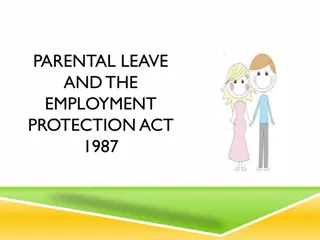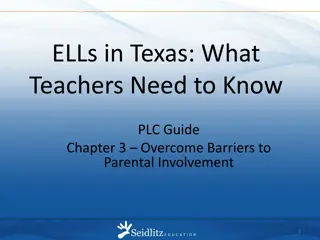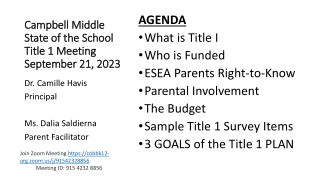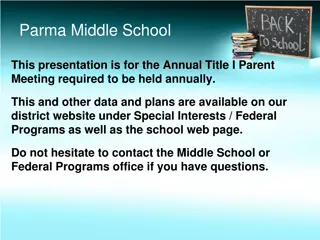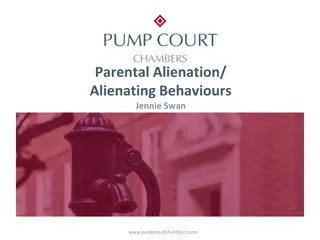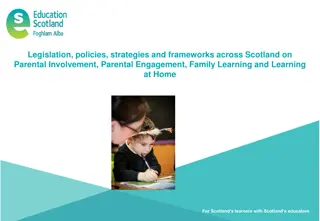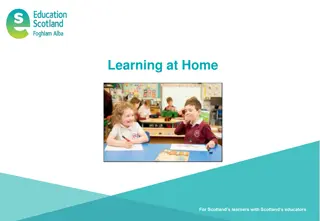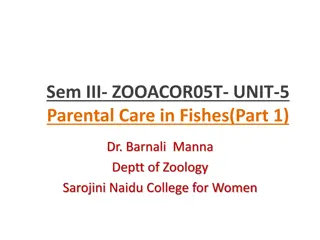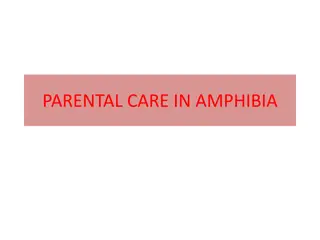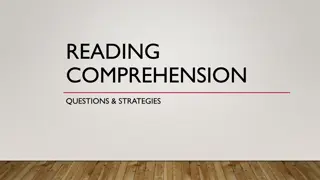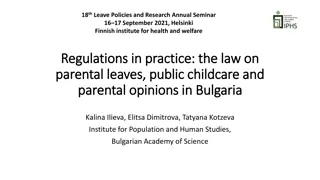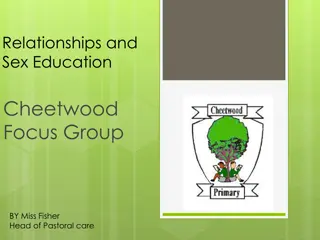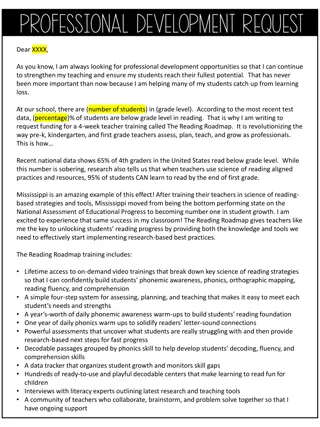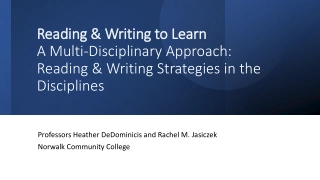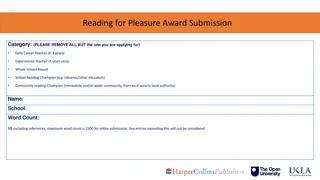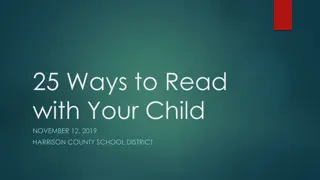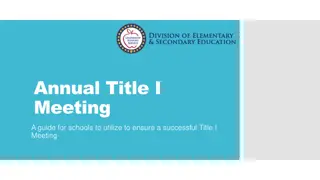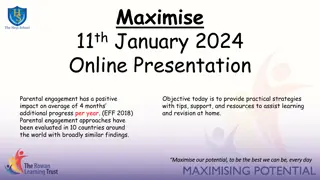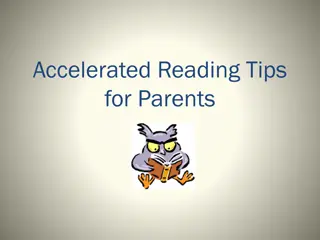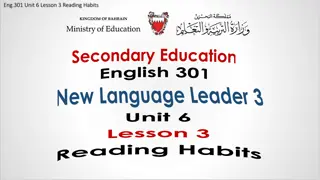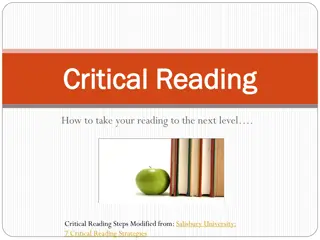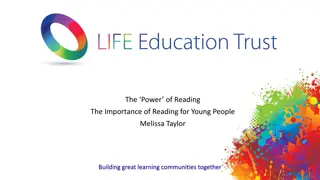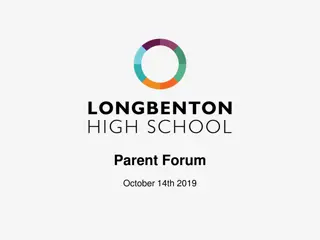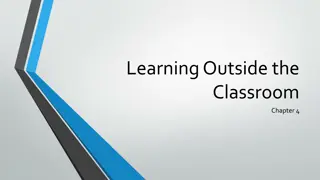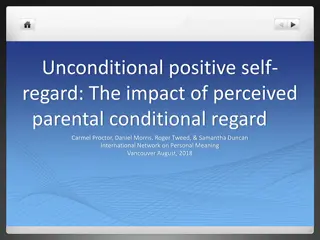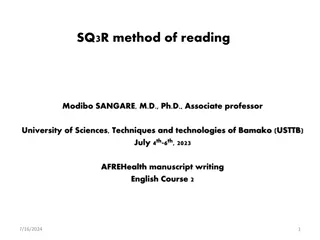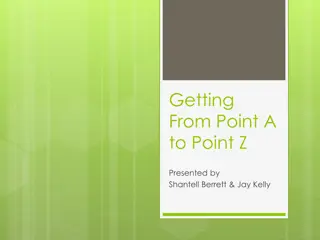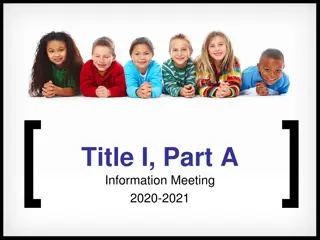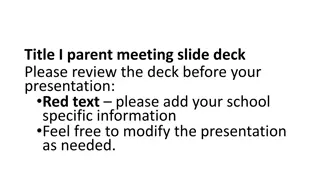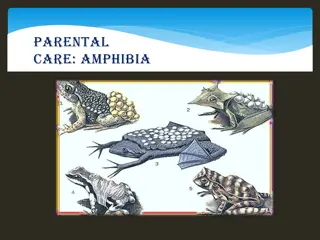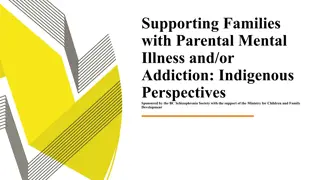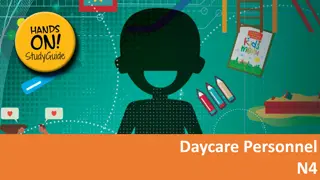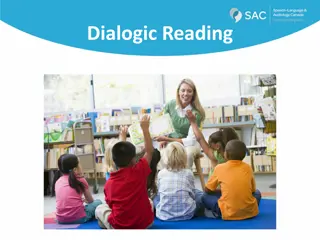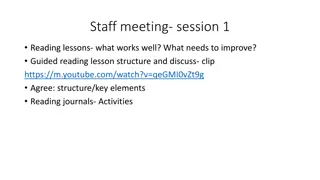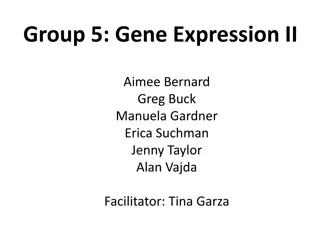Effective Strategies for Parental Involvement in Children's Reading Development
Explore how children are taught to read and develop into confident readers in the Reading Workshop for Parents led by Miss Gibson in February 2023. Discover useful strategies to support your child at home, enhance word recognition, comprehension, and fluency, and foster a love for reading. Delve into the reading journey from beginner readers to independent readers across different key stages. Uncover the role of phonics, teacher-led sessions, RWInc program, and Fresh Start initiative in improving decoding skills and comprehension. Empower your child to become a proficient and enthusiastic reader through valuable resources and engaging activities.
Download Presentation

Please find below an Image/Link to download the presentation.
The content on the website is provided AS IS for your information and personal use only. It may not be sold, licensed, or shared on other websites without obtaining consent from the author. Download presentation by click this link. If you encounter any issues during the download, it is possible that the publisher has removed the file from their server.
E N D
Presentation Transcript
Reading Workshop for Parents Miss Gibson February 2023
A. The reading process how we teach your children to read and develop into confident, fluent, independent readers. B. Helping your child useful strategies to support your child at home. Aims C. Useful links and resources links and resources to make reading enjoyable for you and your children.
1. Phonetic Knowledge Reading a complex process. A good reader will have good word recognition and good comprehension. 4. Language comprehension 2. Sight vocabulary 3. Previous knowledge and life experiences
1. EYFS Beginner readers to developing readers The Reading Journey 2. Key Stage One Developing readers to developing fluency 3. Key Stage Two Developing fluency to confident, fluent and independent readers.
Teacher reading aloud sessions 1:1 teaching with the teacher or teaching assistant Reading in school Read books independently Share books with a partner 4x per week reading comprehension lessons Daily Rwinc phonics lessons
Phonics Some children in Y3 and 4 may take part in RWInc. It is important to make sure that children are confident, fluent decoders which will in turn allow them to access comprehension tasks. . https://www.youtube.com/watch?v=sjlPILhk7bQ
Fresh Start - we teach sounds and students practise reading and spelling words containing these sounds, then we give students decodable books containing sounds and words they can read. They read each module three times at school and again with you at home. Fresh Start Some children in Y5 and 6 may take part in Fresh Start. It is important to make sure that children are confident, fluent decoders which will in turn allow them to access comprehension tasks. On each reading, pupil s fluency increases and the more they can focus on what the story is about. Students also learn to spell the words they have been reading and develop their ideas into sentences so that they can write about the modules they read. Our aim is for students to finish the Fresh Start programme quickly so they can start reading these books for themselves.
Common Exception Words These are words that the children will not be able to use their phonics to read and will be required to sight read. You can help them practise these at home.
1. Vocabulary 2. Retrieval Developing Comprehension Skills 3. Inference 4. Summarising 5.Prediction 6.Explanation
Children throughout Y3, 4 and 5 are taught different strategies to help them determine the meaning of unfamiliar words. You can encourage your children to use these at home. Look for words within the words. E.g. The boy stared at the crowd in amazement. Understanding unfamiliar words. Read around the word to find meaning. E.g. The girl peered at the screen. If you think you know, replace it with a synonym (a word with the same or similar meaning) to see if it makes sense. E.g. The lion devoured its prey.
High Quality Texts
Rwincbook bag book (Y3/4)/Fresh Start Anthology (Y5) Book Band book Independent choice book Reading at home Reading diary
Make Make reading time fun and enjoyable praise and encourage their achievements.. Read Read the independent choice books to your children with enthusiasm many times. How to support your child/ren at home Ask Ask children to read their reading books to you every day for 10 minutes. Encourage Encourage them to fredtalk or sound out to help read unfamiliar words. Encourage Encourage them to re-read the text many times to develop fluency. Talk to them about the characters and the events in the story. Ask questions to develop their understanding. Talk Sign Sign their reading diary every time they read to you.
Asking your child questions about their reading can help to develop their thinking and understanding. Try to ask open questions that start with how and why . Ask your child to look back at the text to tell you how they know the answer. Encourage them to use the sentence starter I know because in the text it says . Talking about the pictures, what the characters might be thinking and predicting what might happen next, all help to develop their reading skills. Here are some useful question stems for you to try at home: 1. Looking at the front cover or title, can you predict what this book is about? 2. Find a word that tells you about the character or the setting. Talk about books, stories, words and pictures 3. Find a word that tells you how the character is feeling. 4. Look at this word/phrase what does it mean? How do you know? 5. Can you tell me another word that means the same as ? 6. Why do you think the author chose the word ? What does it make you think? 7. Where does the story take place? 8. Who are the main characters? 9. What made the character feel sad/worried/excited/happy/scared? 10. Retell the story in order that it happened. 11. At the end of the story the character felt sad/happy/relieved/shocked. Can you explain why? 12. Is this like another story you have read? In what way? 13. Would you recommend this book to a friend? Why?
Watch out for the next issue of The Springfield Reader Talk about reading
Ruth Miskin Parents Page: http://www.ruthmiskin.com/en/find-out-more/parents/ Free e-books for home reading: Online resources available http://www.oxfordowl.co.uk/Reading/ Virtual Library available on the school website: https://www.springfieldacademy.org.uk/
Online resources and apps


